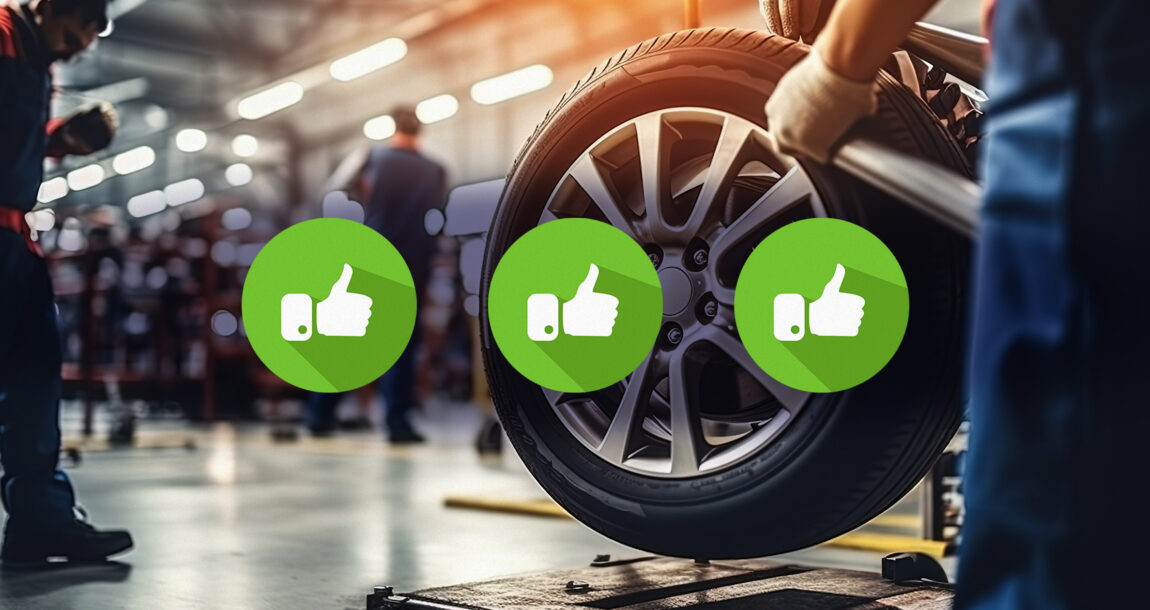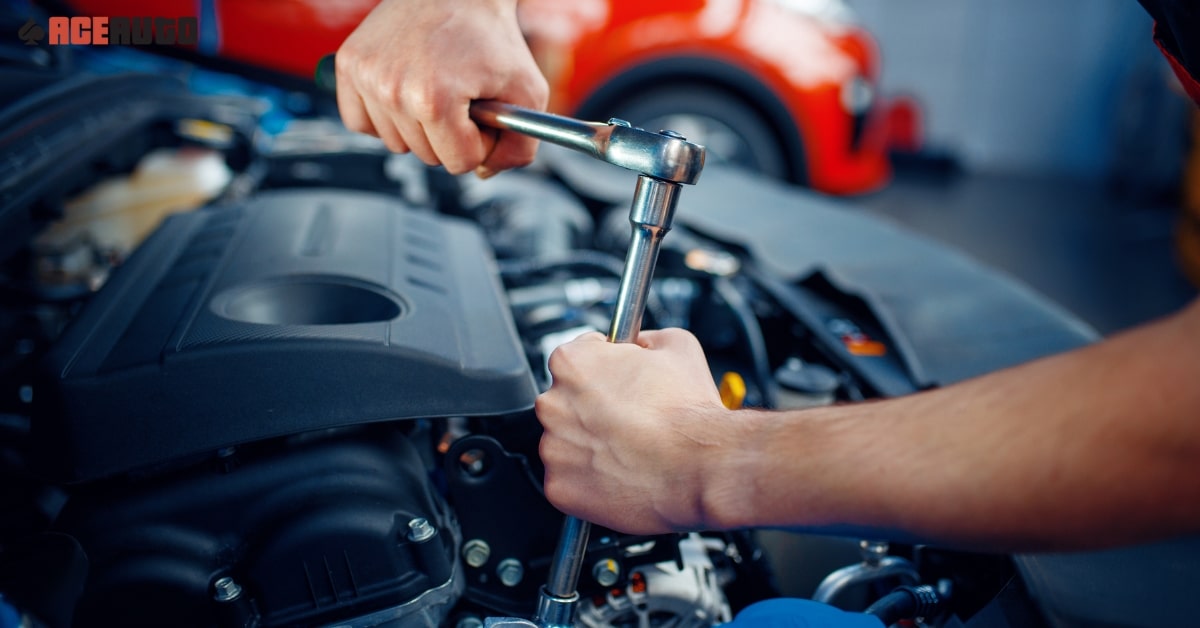All Categories
Featured
Often forgot, the timing belt plays a vital duty in maintaining your engine integrated and operating at peak performance. In this article, we'll check out the value of timing belt substitute and why it's vital to your engine's longevity.
What Is a Timing Belt and Just How Does It Work? The timing belt is a rubber or strengthened composite belt that connects the crankshaft to the camshaft in your engine. These two parts must operate in sync for the engine's shutoffs to open and shut at the appropriate times throughout the combustion cycle. The timing belt regulates this synchronization, making certain that the shutoffs and pistons do not clash.
![]()
As your engine runs, the timing belt consistently transfers to keep these parts lined up. With time, the belt goes through damage from rubbing, engine, and warmth vibrations. If it breaks or comes to be loose, the crankshaft and camshaft will certainly no longer be integrated, creating engine misfires, loss of power, or, in the most awful situation, severe engine damages.
Why Timing Belt Substitute Is Vital. Stops Serious Engine Damage: If the timing belt breaks while the engine is running, the pistons can ram the shutoffs, causing curved shutoffs, harmed pistons, or perhaps a broken engine block. This type of damage usually requires considerable and pricey repair services or an entire engine substitute. Changing the timing belt prior to it falls short is a economical and easy means to avoid such devastating consequences.
![]()
Ensures Smooth Engine Operation: A well-maintained timing belt assists maintain your engine running efficiently by keeping the correct synchronization between the crankshaft and camshaft. When the timing belt is worn or extended, the timing of the engine's shutoffs may be off, creating engine misfires, rough idling, or delaying. Replacing the timing belt at the advised period guarantees that the engine operates as it was made to, optimizing efficiency and efficiency.
Saves You Cash: Although changing the timing belt might seem like a significant in advance expense, it's much more economical than the price of fixing or replacing a damaged engine. The labor involved in replacing the timing belt is much less costly than repairing engine elements that are harmed because of a broken belt. Normal timing belt replacement can conserve you countless bucks in the future by protecting against engine failing and expensive repair work.
Avoids Unanticipated Failures: If your timing belt breaks all of a sudden while you're driving, it can leave you stranded and call for pricey towing. In the worst situations, it can cause a total engine failure that makes your automobile inoperable. By changing the timing belt according to the manufacturer's standards, you minimize the threat of unexpected malfunctions and ensure your lorry remains reputable throughout everyday driving and long trips.
When Should You Change Your Timing Belt? The timing belt does not last permanently, and its replacement timeline can vary relying on the make and design of your lorry. The majority of manufacturers recommend replacing the timing belt every 60,000 to 100,000 miles. Nonetheless, it is necessary to consult your lorry's proprietor's manual for specific standards, as some engines may call for earlier or later replacements.
If you're uncertain concerning the problem of your timing belt, indicators that it could need changing include uncommon engine sound (such as ticking or slapping noises), trouble starting the engine, or inadequate engine efficiency. If required., an expert auto mechanic can evaluate the timing belt for wear and tear and replace it.
Conclusion. The timing belt is an important part of your lorry's engine, and its proper upkeep can save you from expensive repair work and engine damages. Regularly changing the timing belt at the producer's suggested intervals assists make certain smooth engine procedure, prevents unanticipated malfunctions, and inevitably prolongs the life of your engine. Do not ignore this vital maintenance task-- by remaining on top of timing belt replacement, you're investing in the lasting health of your vehicle.
What Is a Timing Belt and Just How Does It Work? The timing belt is a rubber or strengthened composite belt that connects the crankshaft to the camshaft in your engine. These two parts must operate in sync for the engine's shutoffs to open and shut at the appropriate times throughout the combustion cycle. The timing belt regulates this synchronization, making certain that the shutoffs and pistons do not clash.

As your engine runs, the timing belt consistently transfers to keep these parts lined up. With time, the belt goes through damage from rubbing, engine, and warmth vibrations. If it breaks or comes to be loose, the crankshaft and camshaft will certainly no longer be integrated, creating engine misfires, loss of power, or, in the most awful situation, severe engine damages.
Why Timing Belt Substitute Is Vital. Stops Serious Engine Damage: If the timing belt breaks while the engine is running, the pistons can ram the shutoffs, causing curved shutoffs, harmed pistons, or perhaps a broken engine block. This type of damage usually requires considerable and pricey repair services or an entire engine substitute. Changing the timing belt prior to it falls short is a economical and easy means to avoid such devastating consequences.

Ensures Smooth Engine Operation: A well-maintained timing belt assists maintain your engine running efficiently by keeping the correct synchronization between the crankshaft and camshaft. When the timing belt is worn or extended, the timing of the engine's shutoffs may be off, creating engine misfires, rough idling, or delaying. Replacing the timing belt at the advised period guarantees that the engine operates as it was made to, optimizing efficiency and efficiency.
Saves You Cash: Although changing the timing belt might seem like a significant in advance expense, it's much more economical than the price of fixing or replacing a damaged engine. The labor involved in replacing the timing belt is much less costly than repairing engine elements that are harmed because of a broken belt. Normal timing belt replacement can conserve you countless bucks in the future by protecting against engine failing and expensive repair work.
Avoids Unanticipated Failures: If your timing belt breaks all of a sudden while you're driving, it can leave you stranded and call for pricey towing. In the worst situations, it can cause a total engine failure that makes your automobile inoperable. By changing the timing belt according to the manufacturer's standards, you minimize the threat of unexpected malfunctions and ensure your lorry remains reputable throughout everyday driving and long trips.
When Should You Change Your Timing Belt? The timing belt does not last permanently, and its replacement timeline can vary relying on the make and design of your lorry. The majority of manufacturers recommend replacing the timing belt every 60,000 to 100,000 miles. Nonetheless, it is necessary to consult your lorry's proprietor's manual for specific standards, as some engines may call for earlier or later replacements.
If you're uncertain concerning the problem of your timing belt, indicators that it could need changing include uncommon engine sound (such as ticking or slapping noises), trouble starting the engine, or inadequate engine efficiency. If required., an expert auto mechanic can evaluate the timing belt for wear and tear and replace it.
Conclusion. The timing belt is an important part of your lorry's engine, and its proper upkeep can save you from expensive repair work and engine damages. Regularly changing the timing belt at the producer's suggested intervals assists make certain smooth engine procedure, prevents unanticipated malfunctions, and inevitably prolongs the life of your engine. Do not ignore this vital maintenance task-- by remaining on top of timing belt replacement, you're investing in the lasting health of your vehicle.
Latest Posts
Why Regular Car Maintenance at Montclare Auto Repair Reduces Costs
Published May 27, 25
1 min read
Uncover Cut Costs on Car Maintenance with Montclare Auto Repair’s Limited-Time Deals
Published May 26, 25
1 min read
Find the Best Auto Repair Offers in Montclare, Chicago
Published May 23, 25
1 min read
More
Latest Posts
Why Regular Car Maintenance at Montclare Auto Repair Reduces Costs
Published May 27, 25
1 min read
Uncover Cut Costs on Car Maintenance with Montclare Auto Repair’s Limited-Time Deals
Published May 26, 25
1 min read
Find the Best Auto Repair Offers in Montclare, Chicago
Published May 23, 25
1 min read